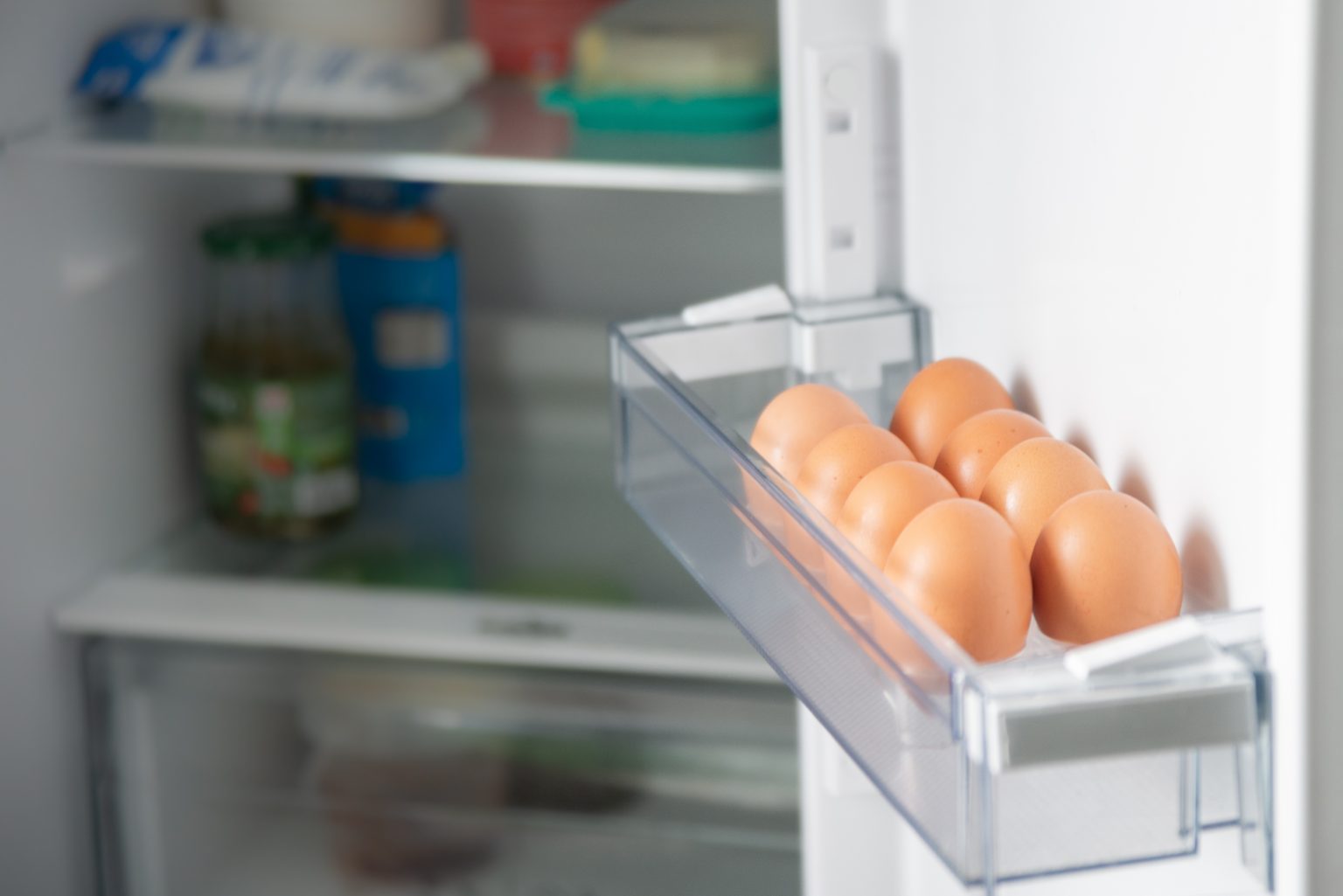Wondering how long you can keep eggs in the fridge before they go bad? Eggs, when stored properly in the refrigerator at no higher than 4 degrees Celsius, can remain fresh for three to five weeks. Ensuring they’re kept at the right temperature helps maintain their freshness and safety for consumption.
It’s vital to know that not all eggs come with the same shelf life. For instance, when you purchase eggs, looking at the “sell by” or “use by” dates can provide additional guidance. Storing eggs correctly ensures they stay fresh longer, reducing waste and keeping your meals safe.
Thinking of extending their shelf life even more? Cracking and freezing them is a smart option. Frozen eggs, when stored correctly, can last up to a year. Just remember not to freeze them in their shells.
Understanding Egg Freshness and Storage
Egg freshness is crucial for both taste and safety. Proper refrigeration and handling can extend shelf life and maintain quality.
Determinants of Freshness
Egg freshness depends on several factors. The shell can indicate freshness—smooth and uncracked eggs are generally fresher. The float test can also help: fresh eggs sink, while older ones float.
Temperature affects freshness. Eggs stored at 40°F (4°C) or below last longer. The U.S. Department of Agriculture (USDA) suggests using eggs within 3-5 weeks of the pack date. The sniff test is another good measure; a bad smell indicates spoilage.
Optimal Refrigeration Practices
Refrigeration is key to extending the shelf life of eggs. Store eggs in their original carton to prevent odours from other foods from affecting their taste. USDA recommends keeping them in the main body of the fridge, not the door, to avoid temperature fluctuations.
Using an airtight container can also help to keep raw eggs fresh. Marking the expiration date or sell-by date on the container can help track freshness. Maintaining a consistent refrigerator temperature of 40°F (4°C) maximises shelf life.
Safety Tips and Usage Guidelines
Eggs are perishable items and need proper storage to prevent contamination. Refrigerate promptly and keep clean, as egg shells can harbour bacteria. Store eggs away from strong-smelling foods to maintain a neutral taste.
Always check eggs for cracks before using. For longer storage, consider freezing eggs. Separate whites and yolks and use an airtight container. When thawing, place the container in the refrigerator to maintain food safety standards.
Maximising Egg Usage and Safety
Proper storage and handling of eggs are crucial to ensure their quality and safety. This includes techniques for storing hard-boiled eggs, guidelines for freezing, and steps to prevent contamination.
Proper Techniques for Hard-Boiled Eggs
Hard-boiled eggs can be stored unpeeled in the refrigerator for up to one week. Keeping the shells on helps protect against contamination. For peeled eggs, store them in a resealable container with a damp paper towel to maintain moisture.
Use hard-boiled eggs in recipes like egg salad and devilled eggs within a few days to ensure freshness. Label containers with the boiling date to track how long they have been stored. Always refrigerate hard-boiled eggs, as leaving them out can lead to the growth of harmful bacteria such as Salmonella.
Guidelines for Freezing Eggs
Freezing eggs is a method to extend their usage. Raw egg whites and yolks can be frozen separately or together. To freeze whole eggs, beat the whites and yolks together before placing them in a freezer-safe container.
Egg whites can be frozen in ice cube trays for easy portioning. Label containers with the date, and use within one year. Do not freeze hard-cooked eggs, as they become watery and rubbery. Thaw frozen eggs in the refrigerator, and use them in baking or scrambled eggs recipes.
Preventing Contamination and Illness
To prevent foodborne illness, always wash and dry hands before and after handling eggs. Store eggs at a refrigerator temperature of 40°F (4°C) or below, as recommended by the FDA. Clean and sanitize surfaces that have come into contact with raw eggs.
Avoid consuming raw or undercooked eggs, especially for individuals with weakened immune systems. Properly cook eggs by frying, poaching, or baking to reduce the risk of Salmonella. Inspect eggs for cracks before use, as cracks can allow bacteria to enter. Dispose of eggs that have an off smell or appearance to prevent the risk of food poisoning.



